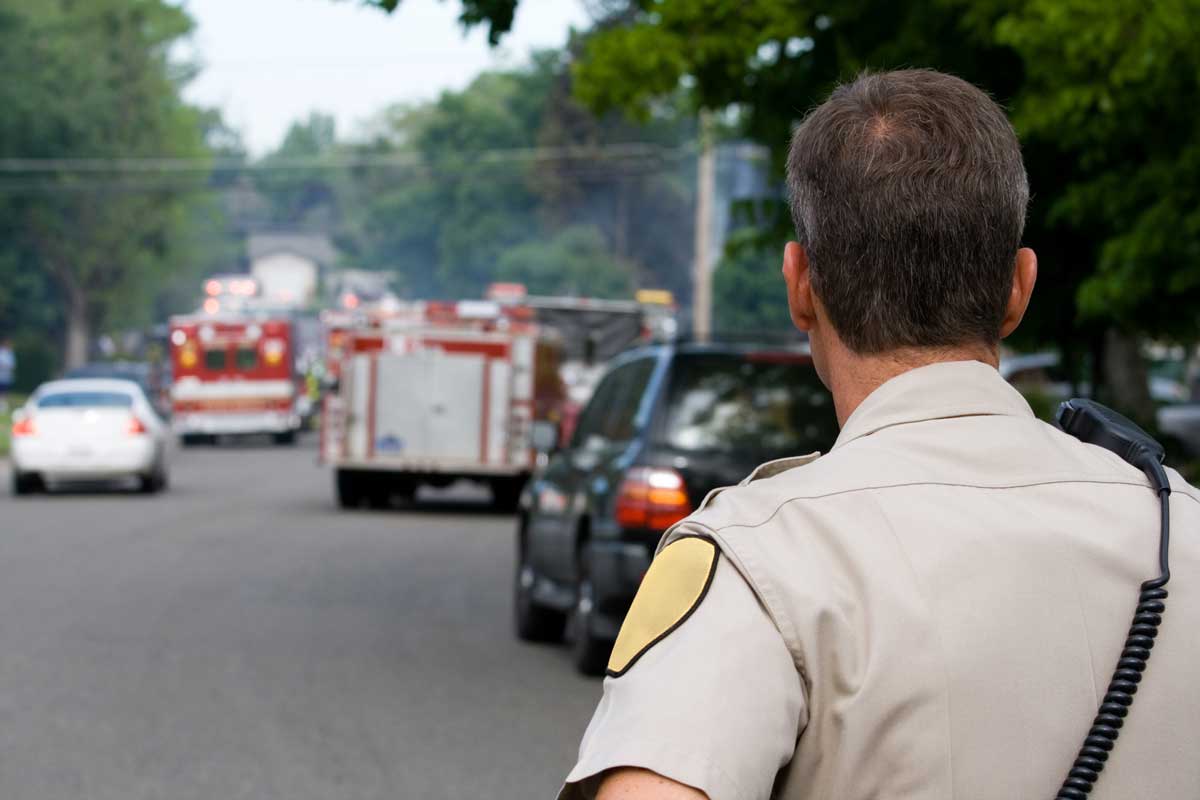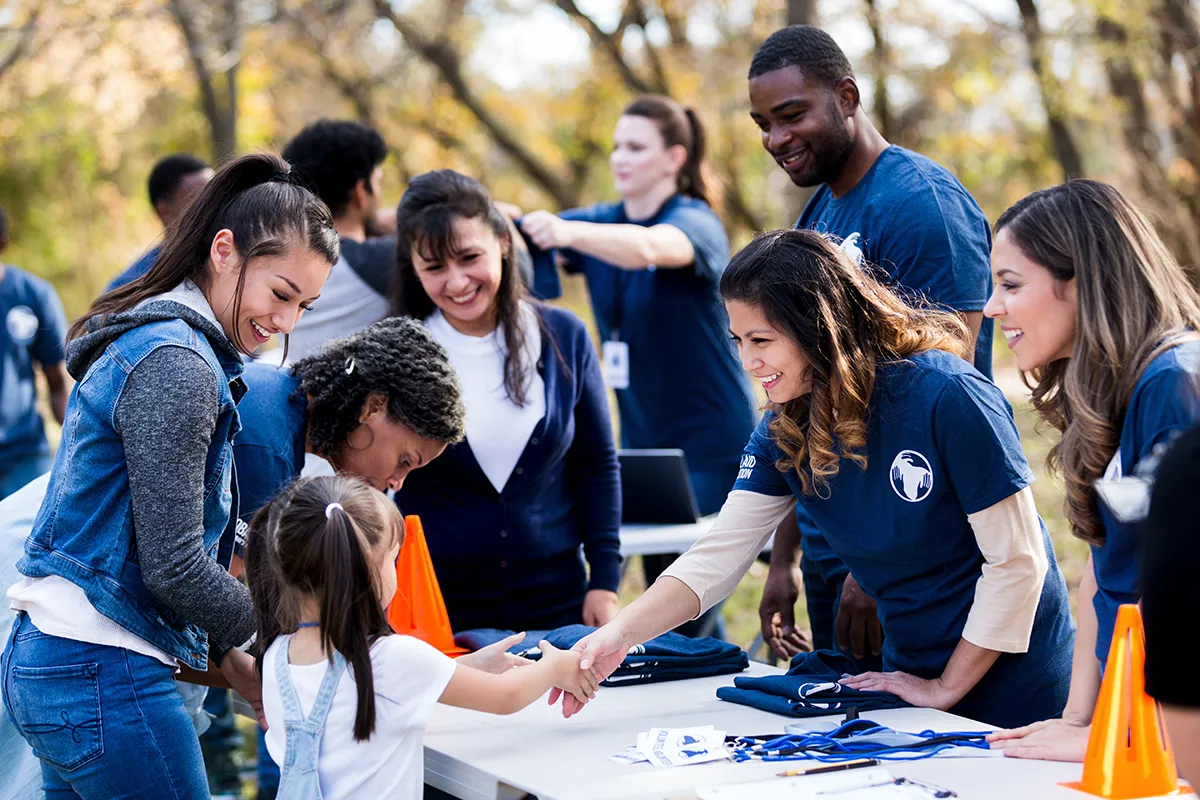Law enforcement officers have a complicated and diverse list of services demanded of them, requiring training in a wide variety of topics. While some training is optional depending on the state you are in, California has identified certain training required for law enforcement officers.
Abuse and Neglect Training
Child/Elder/Dependent Adult Abuse and Neglect
Officers are required to take training related to abuse and neglect experienced by vulnerable populations in the community. Child abuse and neglect training, as well as child abuse investigation training, is required of ALL CA peace officers. Additionally, every city police officer or deputy sheriff at a supervisory level and below that is assigned field or investigation duties within 18 months of field duties assignment must take elder and dependent adult abuse training.
Updated/refresher training is not required for both child abuse and elder abuse.
If you are a law enforcement officer in need of completing your mandated reporter requirements, you can complete training at MandatedReporterTraining.com and get certified today.
Sexual Harassment and Assault
Officers are required to take workplace sexual harassment training and sexual assault investigative training. In California, workplace sexual harassment training must be repeated every two years.
However, officers who are assigned to investigation duties that include handling cases that involve the sexual exploitation or sexual abuse of children must complete refresher/updated training within 6 months of the date of assignment. This can be satisfied by completing the ICI Sexual Assault Investigation course (#33430)
Domestic Violence
Domestic violence (DV) training is also required for all CA officers, and refresher/updated training is required every 2 years for officers below supervisory rank assigned to patrol.
Refresher/updated training is optional for officers at or above supervisory rank, though officers who take advanced officer training (AOT) will receive periodic updates and training on DV.
Human Trafficking
Human trafficking training is not required for general training as an officer.
However, officers assigned field or investigative duties are required to complete 2 hours of training in a course or courses of instruction pertaining to the handling of human trafficking complaints within 6 months of being assigned to that position.
Missing Persons
Training on missing person cases is required of all law enforcement officers as well as dispatchers.
Updated/refresher training is not required.
Emergency Response and Legal Training
California Code of Regulations (CCR)
Of course, CA officers are required to complete training and certification for the California Code of Regulations (CCR).
In addition, the CCR also requires - at a minimum - that officers complete updated/refresher training annually.
Standard Emergency Management Systems (SEMS)
As part of training, officers are required to complete training on a variety of different emergency management systems in addition to ‘Intro to SEMS’ including:
- Incident Command System (ICS 100),
- National Incident Management System (NIMS),
- Federal Emergency Response Systems (FEMA IS 700.a),
- Homeland Security Presidential Directives (HSPD)
- CA Executive Order S-2-05.
Officers are not required to complete updated/refresher training.
Civil Disobedience
Officers are required to complete training regarding the legalities and nuances of civil disobedience.
Updated/refresher training is not required, though officers may voluntarily complete it. However, law enforcement agencies are also encouraged to include periodic updates and training on responding to acts of civil disobedience in AOT.
Terrorism & Emergency Response
Certain emergency response and terrorism training is not required for general officer training.
However, peace officers and First responders to terrorism incidents at the rank of lieutenant and below who are assigned to a field position are required to take training. Public safety communications personnel are also required to take training.
These programs may include training for:
- Emergency Response Training Advisory Committee
- Law Enforcement Response to Terrorism (LERT) - including IS 700.a and ICS 100 as listed above
- Public Safety Communications Terrorism Awareness Course (PSC-TAC)
Hearsay Testimony
Training on hearsay testimony is required for all law enforcement officers and officers with less than 5 years of service who wish to testify to hearsay evidence in preliminary hearings.
Updated/refresher training is not required.
Traffic Accident Investigation
Traffic accident investigation training, as well as training on notices to appear in court, is required of all law enforcement officers.
Updated/refresher training is not required.
Diversity, Equity, Inclusion, and Accessibility (DEIA) Training
Sexual Orientation and Minority Groups
All law enforcement officers, as well as dispatchers, are required to take training educating officers on sexual orientation and minority groups.
Updated/refresher training is not required.
Persons with Mental Illness/Disability
All law enforcement officers are required to take training on persons with mental illness, intellectual disability, or substance abuse disorders. Officers are also required to take training on persons with developmental disabilities or mental illnesses.
Updated/refresher training is not required for these courses.
Racial and Cultural Diversity Training
As a part of POST-certified training and CA law, all law enforcement officers are required to complete racial and cultural diversity training and racial profile training.
Updated/refresher training is required every 5 years for all officers.
Hate Crimes
All officers are required to complete training on hate crimes and investigations.
Updated/refresher training is not required.
Public Health and Safety
Bodily Fluids & Blood Borne Pathogens
All law enforcement officers are required to complete training for Title 8, Section 5193 on how to handle bodily fluids and potential contamination, especially with blood-borne pathogens.
Updated/refresher training is required annually as prescribed by the CCR.
Carcinogenic Materials
All law enforcement officers are required to complete training regarding carcinogenic materials.
Updated/refresher training is not required.
First Aid & Health and Safety Codes (HSC)
Every city/district police officer, (deputy) sheriff marshal, and CHP peace officer, except those whose duties are primarily clerical or administrative, must complete Health and Safety Code training (HSC 1797.183) and First Aid/CPR/AED training. Initial Public Safety First Aid and CPR course of instruction shall, at minimum, consist of no less than 21 hours in First Aid and CPR and additional content as required in CCR Title 22 Sec. 100017.
Eight hours of updated/refresher training is required every 2 years for all officers. This includes satisfactory completion of periodic refresher training or appropriate testing in CPR and other first aid as prescribed by the Emergency Medical Services Authority (EMSA).
Sudden Infant Death Syndrome
All law enforcement officers are required to complete training on sudden infant death syndrome.
Updated/refresher training is not required.
Field Training
Use of Force
All law enforcement officers are required to complete use-of-force training.
Updated/refresher training is voluntary; however, law enforcement agencies are encouraged to include periodic updates and training on the use of force.
Gang and Drug Law Enforcement
All law enforcement officers are required to complete training on gang and drug law enforcement.
Updated/refresher training is not required.
High-Speed Vehicle Pursuits
All law enforcement officers are required to complete training regarding high-speed vehicle pursuits.
For updated/refresher training per CA Law Enforcement Pursuit Guidelines (02/2007) and/or the Vehicle Pursuit Policy (07/2017), 2 hours of POST Learning Portal courses may be used to satisfy this requirement.
Short-Barreled Shotguns and Rifles
All CA officers are required to complete training regarding short-barreled shotguns, short-barreled rifles, and complete Shotgun Course Part I when use is authorized by the agency and within the scope of duties. This training can be satisfied by completing the Regular Basic Course, Reserve Training Modules I or II, or Reserve Modules A, B, C, and D, which all contain POST-certified shotgun training.
Updated/refresher training is not required.
Arrest and Firearms
Every CA law enforcement officer is required to complete training, in addition to peace officers, who must complete an introductory training course. Training in the carrying and use of firearms is not required for peace officers employed by an agency that prohibits the use of firearms.
Updated/refresher training is not required.
Deputies and Appointees
- Level I requires deputies or appointees as reserve auxiliary officers are required to complete basic training courses as required by POST.
- Level II requires POST-certified modules I and II
- Level III requires POST-certified module III
Updated and refresher training is required and varies depending on your level/position under CPT.
Continuing Professional Training Requirement
CA officers are required to meet the Continuing Professional Training (CPT) requirement of 24 or more hours of Peace Officer Standards and Training (POST) every two-year CPT cycle. Depending on your specific duty assignment, you may have to satisfy a portion of the CPT requirements by completing Perishable Skills and Communications training.
Perishable Skills Program
Effective January 1, 2002, all peace officers (except reserve officers and jail deputies) below the middle-management position are required to complete Perishable Skills Training. This training consists of 12 hours of psychomotor training, 2 hours of communications, and 4 hours of use of force training every 24 months.
- Category I - Tactical Firearms - 4-hour minimum
- Category II - Driver Training/Awareness - 4-hour minimum
- Category III - Arrest & Control - 4-hour minimum
- Category IV - Strategic Communications - 2-hour minimum
- Category V - Use of Force - 4-hour minimum
Each of these categories must include the specified minimum topics and exercises and meet the state course objective in order to qualify for the PSP program. All minimum topics and course objectives can be found in Commission Regulation 1005(d).
Note: It is recommended that managers and executives complete 2 hours of CPT devoted to updates in the perishable skills topical areas above within their 2-year compliance cycle.
California officers and other law enforcement agency employees must complete a wide variety of training courses in order to serve the wide range of needs of the community. This article is meant to provide an overview of the training requirements of California law enforcement, but there may be other basic training requirements that are not mentioned. Please visit California’s Commission on Peace Officer Standards and Training for a complete list of mandatory training requirements.
If you are a California law enforcement officer or employee looking to complete your mandatory reporter training requirements, visit MandatedReporterTraining.com and become certified today.



